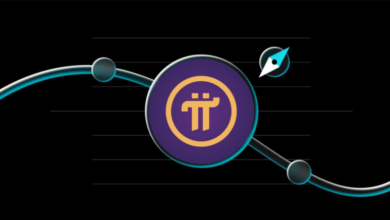Japanese Legal Translation Services for Trademarks & IP

Trademarks and intellectual property (IP) safeguard business assets, but international markets particularly Japan demand accurate translation. One error in a trademark application or patent document can result in legal conflicts, financial losses, or even denial of rights. That is why Japanese legal translation services are crucial for companies venturing into Japan or transacting with Japanese firms.
Japan’s legal structure is very strict regarding trademark and patent applications. Inaccurate translation of documents may lead to delay in approval or create legal loopholes that compromise your protection. Comprehensive translation agency services are thus very important for accuracy, compliance, and peace of mind.
How Japanese Legal Translation Services Ensure Trademark Protection
Trademarks protect brand name, so other people cannot utilize the same names, logos, or slogans. Trademarks are not always automatically translatable across languages. Misunderstanding has the potential to lead to conflicts in branding, cultural miscomprehension, or legal obstacles.
See also: The Digital Evolution: How Technology is Redefining Our Lifestyles
Real-World Example: The Pepsi “Blue” Trademark Case
When Pepsi launched its brand in Japan, it encountered trademark problems arising from differences in culture and language. The use of blue, a color related to mourning in Japan, led to brand problems. An effective localization and translation strategy would have assisted in reconciling the trademark to local consumer attitudes.
How Professional Translators Help:
- Align trademarks to Japanese language and culture.
- Prevent the occurrence of unintended meaning that may impact the brand’s reputation.
- Prevent the expenditure of rebranding costs because of legal rejection.
Patent Translation: Accuracy Is Critical
Patents must be worded exactly to set the boundaries of protection. One improperly translated term can undermine a patent, and competitors can manipulate loopholes. Japanese legal translation services guarantee technical words, legal terms, and trade-specific wording are translated correctly.
Case Study: Apple vs. Samsung Patent Dispute
In a high-profile international patent conflict, Samsung and Apple engaged in court wars over phone technology. One of the most important issues in the case involved patent claim translation. In Japan, minor variations in wording influenced legal meaning, and thus the courts’ rulings.
Key Considerations in Patent Translation:
- Technical precision to preserve patent scope.
- Legal accuracy to comply with Japan Patent Office (JPO) regulations.
- Consistency in multiple filings to ensure coherence.
Common Challenges in Japanese Legal Translations
1. Language Complexity
Japanese has various forms of writing (Kanji, Hiragana, Katakana) and various levels of formality. Legal documents have exact wording, which computer translation software frequently cannot provide.
2. Legal Terminology Differences
The law terms in Japan do not necessarily have English counterparts. For example, the Japanese trademark system has special classification rules that are different from the U.S. system.
3. Strict Regulatory Requirements
The Japan Patent Office and other legal authorities have strict formatting and submission guidelines. Structural or terminological errors can result in rejections.
Choosing the Right Japanese Legal Translation Partner
A good translation agency offers more than word-for-word translation. Full translation agency services include:
- Certified legal translators with knowledge of Japanese law.
- Localization to guarantee cultural and legal compliance.
- Quality assurance processes to remove errors.
- Specialization in dealing with trademark, patent, and IP documents.
Success Story: A Global Tech Company Expanding to Japan
A U.S. software firm sought to trademark its brand in Japan but was hindered by the complexity of Japanese IP laws. By engaging a qualified legal translation vendor, they assured:
- Their trademark was compliant with the law.
- Their brand name had no unwelcome cultural misinterpretations.
- All documents were filed properly, eliminating expensive delays.
Consequently, the company was able to secure its trademark, penetrate the Japanese market smoothly, and steer clear of possible legal fights.
Final Thoughts
Entering Japan presents great prospects, but patent and trademark problems can turn into stumbling blocks if not approached appropriately. Hiring Japanese legal translation services guarantees your business interests, inventions, and brand are well guarded under Japanese law.
Selecting an agency provider with full translation agency services provides accuracy, legal alignment, and seamless market entry. Don’t expose your IP invest in translation professionals to protect your international success.




